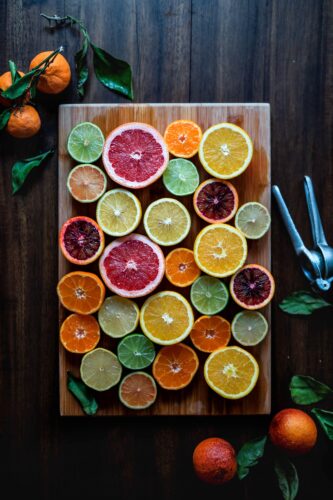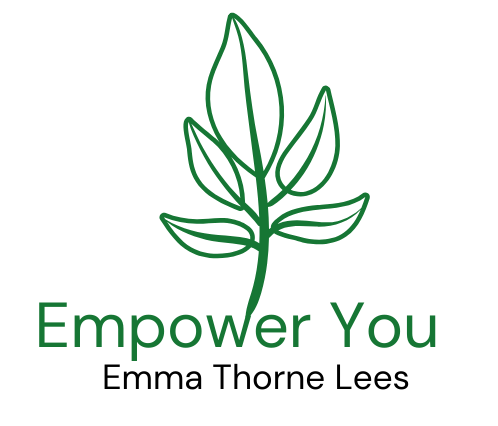Intuitive Eating – Respect Our Body
After a bit of a break, I am back to my Intuitive Eating journey and now for Principle 8 – Respect Your (Our) Body. The basics of which is: respecting that we are all different and our bodies are all different too.
Sounds straight-forward and yet the reality is not quite so! Whilst we know that if we have a size 6 shoe, we don´t (usually!) try and fit a size 3 or 8 shoe on our foot and then criticise the size and shape of our foot. The same doesn´t apply for our body. When do we respect the size and shape that we are and also our genetic make-up? If we don´t start to respect the body we have then it makes it that much harder for us to be in tune with it and work together to reject diet mentality and be the best and healthiest we can be. We wouldn´t expect a child or friend to improve by criticising them constantly – why would our bodies be any different?
I wanted to start by reflecting on a story I heard a while back, unfortunately I can’t remember where I heard it from to give them credit.
If we were told that we could have one car, whichever car we wanted, but we had to keep it for the rest of our lives. What would we do with that car?
Would we wash it each week, get it regularly serviced, drive it carefully and listen for any issues with the engine, for example? Yes, to all the above, I suspect.
How about with our bodies?
This is our vehicle for all our life.
How do we treat it, listen to it, talk to it, look after it? Is it the same way as we would do with a car that we had for life?
I thought this was a powerful story. Why is it so much easier for us to care for a car than ourselves?! Doesn´t make sense! And yet that is often what we do!
So, diving into my ever-trustworthy Intuitive Eating Book I have learnt more about this principle which very much builds on the earlier ones, particularly the previous principle, ´Coping with our Feelings with Kindness´. If we are at war with our body then we are essentially at war with ourselves! It also makes it much more difficult for us to be at peace with food if we are in this war-like state and it can make food become a weapon that we use against ourselves. What does it feel like when we live in a war zone? What are we more likely to turn to as a result?
What body do you have?
It appears virtually the norm to be disparaging about our body and almost a badge of honour to complain about some or all of it. After all who wants to appear arrogant or above their station? Our society, diet culture and all the messages we absorb from our families, culture, etc, etc make it all too easy to be negative about our body and body image. What would it feel like to make the shift to appreciating the body we have? Not telling ourselves grandiose things like I have the best bum in the world or I love every part of myself, but showing simple appreciation for what it is and what it does for us?
Intuitive eating, as Resch and Tribole put it, takes weight out of the picture and opens the door to the freedom that can come with respecting our bodies. This can be done here and now, not in a month or when we have lost x pounds or been to the gym or whatever. Right now. Can we respect what it is and what it does for us? Even one small part of it?

There is actually a growing movement called Health at Every Size (HAES) if you want to check it out which focus on respecting and appreciating our bodies, rather than what most of us might do.
Yes, it might feel a bit weird to change to having appreciation or respecting our body, but how we would talk to a child about their body? Can we start to do that for ourselves even in very small ways? How would we take care of a child´s body – feed it, exercise it, talk to it? Can we extend this to ourselves – the same respect and appreciation?
How can we respect our bodies?
Our bodies are the only constant we have in our lives, and they deserve our respect and appreciation. Here are some basic foundations from the book which are hard to improve upon:
- My body deserves to be fed.
- My body deserves to be treated with dignity.
- My body deserves to be dressed comfortably and in a style I like
- My body deserves to be touched affectionately, with my consent and respect.
- My body deserves to move comfortably to the extent it is possible.
How can we explore doing this for ourselves day to day? Without being at war or pushing ourselves to being uncomfortable or outside of respecting our bodies? Is there one thing we can do today that aligns with one of the above?
For example, how comfortable is our underwear (I am noticing that my bra is digging into me right now!) Can we give ourselves permission to buy and wear underwear and clothes that feel comfortable to us? Not to wait to buy underwear for when we have lost weight or some other day, but to be comfortable right now?
Other ways we can start to be comfortable with our bodies and less at war are wearing clothes that we feel good in and suit our body shape, dispensing with the scales (if we haven´t already!), stopping to compare ourselves to others (would we compare our feet to someone else´s?)
How about we view our body as the beautiful instrument that it is that enables us to live, work, enjoy life, rather than something we objectify, based purely on appearance?
Can we feel and make that shift? Then we can start to tune into it more and listen to its’ needs and respect it for what it is, rather than some false expectation. We need to be realistic with what our bodies want and need, we need to allow ourselves to enjoy what we have and remember that genetics play a large part in our body shape. We can do nice things for our body, even if we don´t feel like we really love it, we can enjoy having a bath or a massage or touching it, this is a basic human need! We can edge towards an appreciation for what it is, our lifelong partner. We wouldn´t want to argue with a life partner forever, so why would we want to do that with our own bodies?

The myth of BMI
It was fascinating for me to learn that the BMI (Body Mass Index) was initially created by a mathematician over 200 years ago to screening tool to help look for larger populations. It was never created to be an indicator of health and yet that is what it has become! It doesn´t take into account so many individual factors including muscle weight, genetics, overall health, fitness. It has been criticised a lot, but yet it is still used a lot in the medical profession. And sadly it underpins a lot of our focus on being aesthetically the ´right´ body shape or size, rather than actually healthy lifestyles and choices.
Sadly, it also brings with it a lot of weight stigma and prejudice that is entrenched in our society. Sometimes healthcare is actually refused on the basis of BMI when it actually has very little to do with our overall health and wellness. From an early age we can be bullied, teased, judged on our body shape and size and there are increasing examples of fatphobia. However, there is a growing body of research that shows that we cannot judge or diagnose anyone´s level of health based on body size. We need to start to question these judgments and limitations that we hold over ourselves and others and focus on what really matters. If we respect, honour and appreciate our bodies we are far more likely to make empowered decisions in relation to our health and wellness.
Yes, this may be hard if we have spent many years dieting or chastising ourselves for not having a body of a certain size or shape that we have aspired to have. We may have to mourn that we will never look like x person or feel like we will have the body that will look like a certain model in a bikini. But what makes our day to day better, what might make us physically and mentally stronger and therefore more likely to look and care for our bodies? Fighting and critcising with ourselves? Or making a shift to appreciating what we have and respecting it to be in partnership, rather than at war?
This requires a lot of reflection, self-compassion and empathy – all of which we would extend to a child or good friend.

Now it is our turn.
We may also need the help of a therapist to support this journey. It is also going to be easier if we have supportive community around us too, so we may have to seek them out on or offline.
If we can start to bring some awareness about how we and other people speak about our bodies, this is the start of a new journey. A journey where we can grow to become our own best life partner, one that strengthens and responds to ourselves. A partner that listens, empathises, respects, works to improve where it feels comfortable and right and pushes out of our comfort zone at times too. All in with the intention to respect our bodies, but also to care for it the best way we can.
Respecting our bodies, again, sounds so simple and yet it feels quite counter-culture. Why is it almost a badge of honour to diminish ourselves? We all have the power to make a different choice. What are you going to do today to start to respect your body?
I am going to ditch this bra! I deserve to be comfortable in my body every day not some mystical day in the future. How about you?
Let me know your thoughts………… What does it feel like to you to respect and appreciate your body? What do you think about looking at our bodies beyond their size and shape? What small shifts will you make to start to listen and respond to your body? As always, I would LOVE to hear your thoughts, questions, experiences, please send me a comment below……
Images: Rupert Britton Unsplash, Edgar Castrejon, Billie, Bernard Hermant




Great read!! Terrific info. I’m new to Intuitive Eating concepts. Will explore more of what you have compiled and sign up for your newsletter. Great images! Thanks, Emma.
Thank you for your comment, Beth. Intuitive Eating is such an interesting and counter-culture way to explore food and eating. So glad you are excited to find out more!!